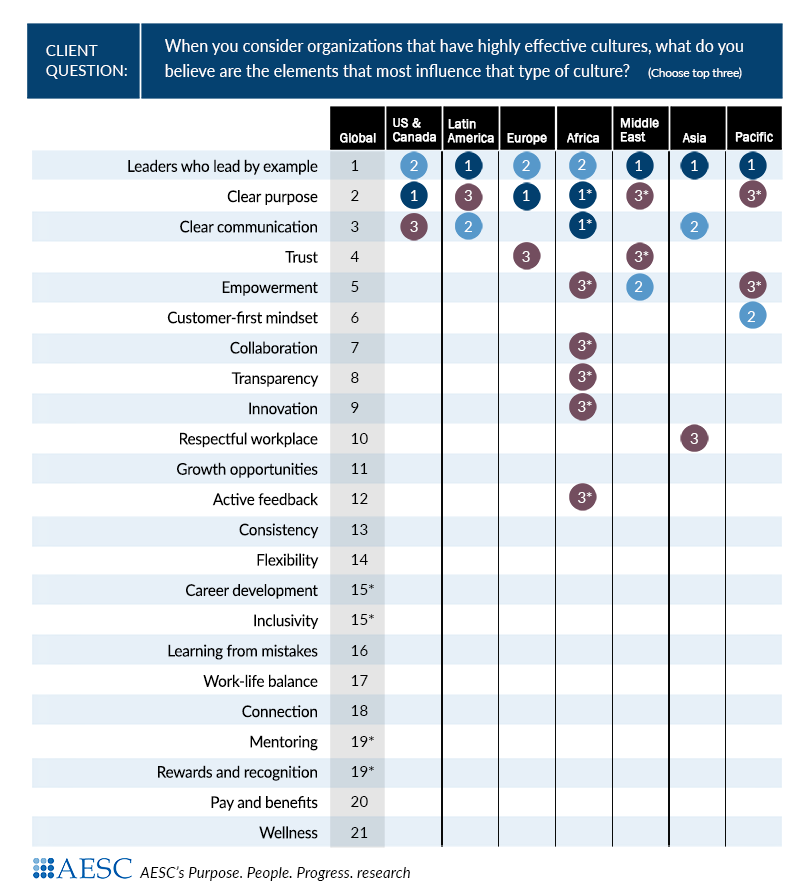Insights
Leading Through Times of Crisis: A Q&A with Morten Nielsen

During times of crisis, strong, agile leadership is necessary to guide teams and organizations. Leaders must be able to embrace without fear whatever change is thrust before them, quickly adapt, and uncover the opportunities among the challenges.
Morten Nielsen, Chairman of the AESC Board and Senior Partner & Global Managing Partner at WittKieffer, offers insight on how to accomplish this. Top business leaders, executive search and leadership consultants, and today's leading candidates can find inspiration from his advice.
With empathy, collaboration, innovation, and agility, we can find our way forward.
Leading Organizations and Teams, Now and in the Future
In a time of great uncertainty, can you share some ideas that can help leaders stay strong and resilient?
Leaders should focus on buffering and prioritizing their self-involvement by delegating, setting limits, and holding regularly scheduled meetings and check-ins. When necessary, leadership should borrow techniques from triage to first stop the bleeding, then rank priorities moving forward. It’s important to manage the organization’s crisis response by being cognitive and thoughtful about the long-term instead of just reacting because the company is in crisis mode.
Members of the C-suite and the board also need to concentrate on building a social support network that allows them to lean on people they trust who are in the same or a similar position. C-suite leadership is experiencing this crisis differently from their teams, so supporting each other is key to preventing burnout.
It’s important to manage the organization’s crisis response by being cognitive and thoughtful about the long-term instead of just reacting because the company is in crisis mode. - Morten Nielsen, WittKieffer.
What should organizational leaders be thinking about now in order to be best positioned for the post-COVID-19 climate?
Organizational leaders should be thinking about their capacity to drive company culture when most team interactions will be by phone or video due to the increased amount of dispersed leadership teams and talent. As time goes on, there will be new relationships formed that have only been built virtually which creates significant challenges when it comes to cultivating culture and a sense of belonging.

In addition, leadership should be considering that some of the skillsets that were in demand 10 years ago following the 2008-2009 financial crisis may come back into demand. For example, the ability to shift into new business models very quickly as well as experience managing investor relationships will be in high demand. Additionally, new desirable skillsets will likely emerge given the unique nature of the current global crisis.
It is also important to remember what hasn't changed: Top talent has choices. The very best candidates will have choices and they will be looking at several opportunities before deciding. During and after the COVID-19 crisis it is still a candidate’s market when it comes to top talent. While aspects such as culture, specific roles, and compensation are important, candidate care should be a priority.
Can you share some real-life examples of leadership or organizations that are handling this crisis successfully? What do you think has led to their success?
COVID-19 has inspired a moment of collaboration in both healthcare and the life sciences. In fact, we’ve seen numerous leaders of healthcare and life sciences companies come together during this time, setting aside years of competing interests, in favor of sharing information to tackle the bigger fight. Similarly, biopharmaceutical companies who have never collaborated before have worked together to put together a plan to scale plasma donations and treat thousands of patients in less than three months. By working together, these organizations are able to reserve their capabilities and capacities for the things they are uniquely qualified to do.
How Executive Search & Leadership Consultants Can Embrace Change
In what ways can our profession best serve their clients during this time?
As executive search and leadership consulting professionals, we need to be considering what we can do to help our clients attract and utilize desirable leadership capabilities as their organizations begin to emerge on the other side of this crisis. Examples of these skillsets include experience with any sort of black swan disruption, regardless of industry; the willingness and ability to partner with other organizations; and experience with strategy reorientation, like switching to a direct to consumer business model.
We should also help our clients recognize and reskill or upskill capabilities that were developed in one industry and apply them to another industry. For example, industries like travel and hospitality will be impacted more heavily and for longer than others by the current pandemic. This creates an opportunity for clients who are looking to improve customer or user experience to bring in leadership talent from the hospitality sector to lead their user experience team.
What changes do you expect to see in the executive search & leadership consulting profession due to the repercussions of COVID-19?
I think that pretty much everything is going to change. From increased use of virtual capabilities in the execution of searches and in other leadership and talent assignments for clients to changes in business models. Most periods of crisis or other major disruptions to life and business have been followed by a desire for growth and new, faster ways of achieving goals and objectives. I think we as a profession need to step up in a number of areas, including utilization of AI in several aspects of our work. This applies to the identification and evaluation of leadership and talent, as well as assessing and predicting the impact that a leader can have on an organization.
Our relationships with clients are also going to evolve – these too will be more virtual than they have been in the past. This change will tend to favor established relationships between clients and search and leadership professionals. Anyone who is serious about growing their market share will need to be apt at using virtual capabilities and provide solutions that represent significant added value for their clients.
Anyone who is serious about growing their market share will need to be apt at using virtual capabilities and provide solutions that represent significant additional value for their clients. - Morten Nielsen, WittKieffer.
Navigating the Job Market in an Uncertain Business Climate
Any advice for candidates? What are some things candidates should be considering in this type of business climate?
Candidates should take the pandemic as an opportunity to really re-evaluate their long-term career priorities. They should be considering what it is that truly motivates them and makes them an effective executive in their field.
At the same time, candidates should maintain flexibility in terms of what employers are looking for. Employers’ short-term needs may focus on achieving stability during this time of crisis, while their long-term focus may be on growth and innovation. Regardless of industry, candidates will need to portray themselves as someone who can lead during and after a crisis.
How can candidates best position themselves in a post-COVID-19 climate?
To prepare for the post-COVID-19 climate, candidates should document any experiences that have shown their ability to manage through crisis, downturns and black swan disruptions. Focus on how to take learnings from those experiences into growth-oriented periods of time.
During an interview, candidates should be genuine and discuss the challenges and lessons they've learned during COVID-19. They need to be sure to describe to potential employers how they've persisted and use the specific examples they’ve documented. It’s important to talk about how they'll apply the lessons from COVID-19 to future leadership opportunities.
Candidates looking for insights on how to navigate this unprecedented environment can access COVID:19: Career Navigation Through a Global Pandemic, a new executive career guide from BlueSteps.
Candidates Can Access on BlueSteps

